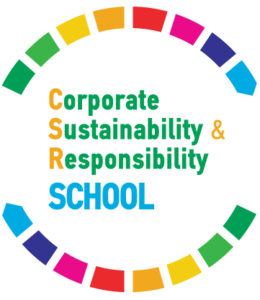Overview of the CSR School
The CSR-School provides advanced training regarding the identification of sustainability-related business opportunities and the inclusion of responsibility in the core of one’s business strategy, in order to achieve sustainable value and formulate a more resilient organization.
The training program is envisioned as a journey that will cover all major identified areas that relate to the responsible management of sustainability. CSR-School 2023 will take place between 13 November and 11 December on a weekly basis, during which a minimum of 40 hours of sustainability-related knowledge and management experience will be shared, trainees will gain an up-to-date overview of major developments around the largest environmental, social and governance challenges affecting businesses nowadays. This year, the CSR-School will take place in hybrid form , giving attendees – and speakers – the choice to either attend in person (location: The American College of Greece, Athens) or virtually (via Zoom).
During the 5 Hybrid Sessions, the participants will attend lectures by distinguished academic faculty members, discuss relevant case studies, learn about best practices that have been implemented by experienced senior professionals and exchange views and thoughts around the incorporation of relevant theory into the CSR initiatives of their own organization
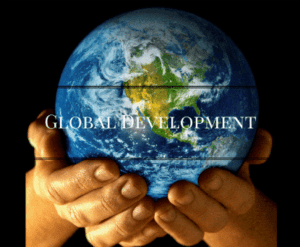
In the post–World War II era, the world has experienced huge economic and social progress, lifting hundreds of millions of people out of poverty. Moreover, digital technologies have provided us with tools that enable us to solve our most pressing social and environmental challenges.
Yet, there is a consensus that the current model of development is deeply flawed, adding to a growing list of global burdens that threaten our future stability and shared prosperity. On the environmental front, human activity has led to climate change, loss of biosphere integrity and land-system changes. On the social front, there are vast numbers of people who do not have access to basic services such as healthcare, clean water, clean energy and sanitation.
Aforementioned challenges are becoming even greater and more pressing due to the COVID-19 pandemic that triggered an unprecedented global shock. The coronavirus pandemic has had a profound impact on the everyday operations of almost every business in all economic sectors and on the ways they interact with their stakeholders. It has forced businesses to rethink their materiality. In the past, environmental, social and governance (ESG) issues such as employee health, safety & wellbeing and labor practices, represented a moderate risk in the materiality assessment of most companies. However, with the COVID-19 outbreak, these issues have become progressively more important as companies rushed to adopt measures to protect their people and ensure business continuity.
To that end, this year’s educational approach incorporates all important aspects of sustainability that businesses need to integrate into their strategy in order to prepare themselves in the face of emerging challenges.
The resulting uncertainty and turbulence arising from the current model’s failures make it hard for businesses to see a way forward, towards future growth and prosperity.
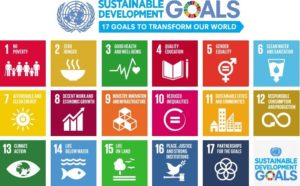
In this context, sustainability arises as a business opportunity, with direct ties to investor returns. Setting business strategies and transforming markets in line with the UN Sustainable Development Goals offers a compelling growth strategy for individual businesses and the world economy at large.
In 2015, governments agreed to achieve 17 Sustainable Development Goals (SDGs) by 2030, as an urgent step to transform the nature of development so that it meets the standards of sustainability in three main areas: Society, Environment and Governance. The business case for sustainable development is already strong since it opens up new opportunities and big efficiency gains, resulting in attractive returns for shareholders.
Specifically, according to the ‘Better Business, Better World’ report of the Business & Sustainable Development Commission, it has been estimated that achieving the SDGs opens up an economic prize of at least US$12 trillion by 2030 for the private sector and could create 380 million new jobs.
Recent studies show that 5 years after the adoption of the Sustainable Development Goals (SDGs), the current pace of change does not guarantee the achievement of the SDGs within the next 10 years (that is, by the 2030 target). The modern business environment requires a re-assessment of already existing business models in all sectors. At the same time, pressure is growing on the part of business’ stakeholders, urging companies to incorporate responsibility and sustainability into every aspect of their operation.
At the same time, the global public health crisis caused by the COVID-19 virus is creating a whole new environment in the areas of Corporate Social Responsibility (CSR), responsible entrepreneurship and corporate sustainability.
In order for companies to respond more effectively to this urgent need for change, they need to adopt a new strategic approach where growth remains at the core of the business objective, while ensuring that the latter does not work to the detriment of the environment and society. It is evident that the potential for change of each company and each branch varies. What companies need in order to remain sustainable in the modern economic environment is to follow the fourfold principles of Responsibility, Governance, Innovation, and Collaboration.
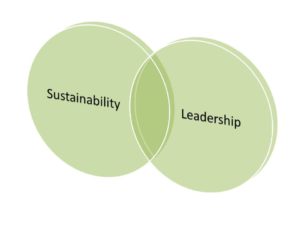
In an era of growing global challenges, the business leadership challenges are greater than ever. Stakeholders express their expectations and exert pressure concerning the confrontation of urgent issues, such as climate change. In this context, a number of leading companies realize the huge potential of global and business development through the adoption of sustainability and take bolder steps to expand in the fastest-growing markets under the spectrum of the SDGs.
The relevant business leaders are people who strive to achieve maximum shared value, i.e. economic, societal and environmental value over the medium- to long-term.
Business leaders who recognize the centrality of the SDGs for achieving long-term business growth:
- Communicate that understanding to the business and investment community.
- Integrate SDGs into corporate strategy.
- Work with peers in their sector to make intra-sector competition sustainable.
- Help shape enabling policy.
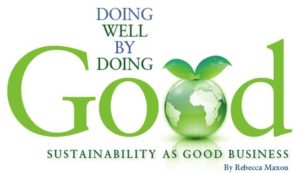
An increasing number of companies are promoting their corporate responsibility strategies as a response to numerous social, environmental and economic pressures related to the SDGs.
Most definitions of corporate responsibility describe it as a concept whereby companies integrate social and environmental concerns into their business operations and into their communication with their stakeholders on a voluntary basis.
Running a company in a responsible manner essentially means maintaining economic success and gaining a net commercial advantage by ensuring a good reputation and gaining the trust of the company’s stakeholders.
Part of the training program will focus on the investments that need to be made in order to achieve change. Studies and research will be presented according to which investments in companies that create products and services that can assist in confronting global challenges are constantly increasing. At the same time, reference will be made to specific sustainability tools, models and indicators that have already been created and implemented by many businesses, rating agencies and stock exchanges around the world.
The program will also explain the importance of measuring sustainability performance as a key component for improved management of CSR, by incorporating ESG factors which are now vital for institutional investors. Those factors also act as guides to responsible funds interested in investing in responsible and sustainable corporations. Finally, the program will present the way new technologies can help improve the understanding of the maturity level of each company, but also how they can assist in the enhancement of integration within the corporate strategy.
